Mar 22, 2025
Schwa /ə/ sound
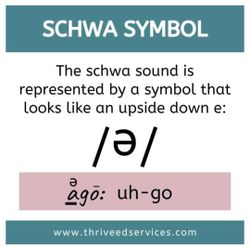
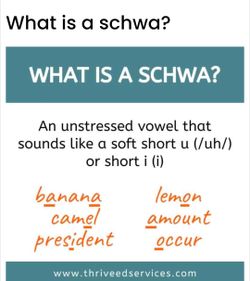
Types of syllable stress:
The strongest syllable
*higher pitch
*longer vowel
*louder sound.
The rest of the syllables are either regular or a weak stress.
Regular stress is a regular vowel
not higher
not longer
not louder.
Unstressed syllables
The vowel reduces to
/ə/ or /i/
Examples:
Opportunity
ah pur TUN uh di
Holiday
HAH luh day
Congratulations
kn gra dju LAY shuns
Note: in words with an ending like shun the strongest stress is before the ending syllable.
If you can reduce a vowel to a schwa and the word still makes sense, it's probably correct to do so.
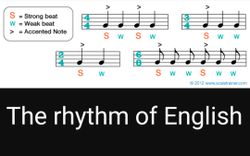
Schwa vowel sound (ə)
sounds like a soft short U
(/uh/) or short I (/ĭ/).
Try saying
"kg"
Schwa is the "uh" between k and g.
Schwa can sound like /i/ in syllables that end in /n/ or /t/
The Lazy Vowel
The schwa is also known as the lazy vowel because your mouth barely has to open to make the sound, and it’s a weak sound. In some words, it’s so weak we barely hear it, such as in the words ‘interest’ and ‘chocolate’.
For example, consider the sentence: The boy is mad. Notice how boy and mad are stressed and sound different.
Words with more than one syllable will have stressed and unstressed syllables, as in the word mir/a/cle.
The English language is a stress-timed language. This means that some words and syllables take longer to say than others. These are referred to as stressed or accented.
The words that communicate the most essential parts of a message (nouns, main verbs, adjectives, and adverbs) are stressed in an English sentence. Function words, such as pronouns, articles, and conjunctions, are usually not stressed.
Accenting Patterns
There are 3 common accenting patterns in words with more than one syllable:
1. Accent the root of a word, not the prefix or suffix:
jumping
JUMP ing
2.If the root word has 2 syllables, we usually accent the first syllable:
fashion
FA shuhn
3.Words with 3+ syllables that end in a silent-e
stress the second to last syllable.
contaminate
kuhn TAM uh nate
illuminate
uhl LU muh nate
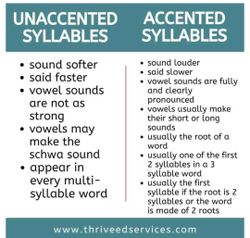
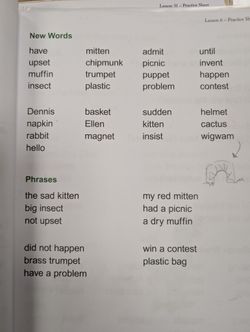
*If the schwa comes before n or t, it is usually pronounced as a short /i/.
BLANkət
ROCKət
BUCKət
CARrət
HUmən
THOUsənd
PRESənt
enVIronment
(ən VI rən mənt)
REAsən
RIBbən
Vol ən TEER
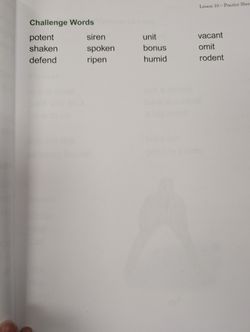
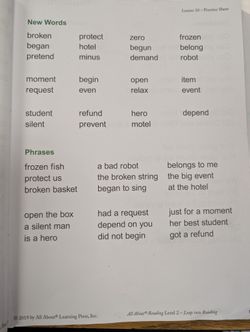
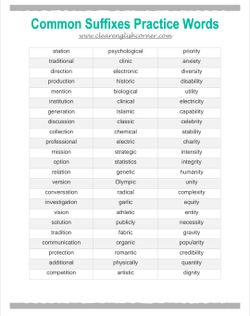
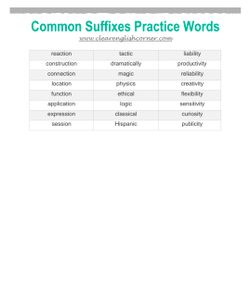
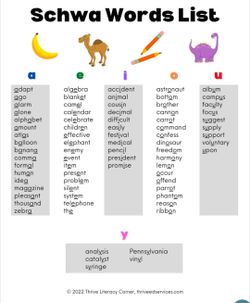
By undefined
17 notes ・ 9 views
English
Beginner